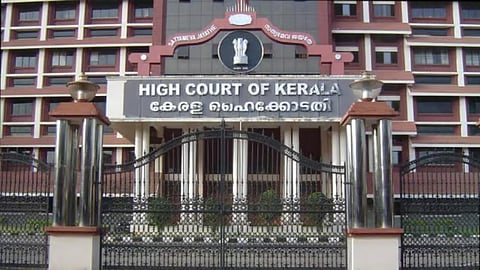

In August 2016, Fathima (name changed) – a second year law student at Karanthur Markaz Law College in Kozhikode – participated in an interactive session with the then finance minister Thomas Isaac. As all participants, she was also invited to the stage and given a token of appreciation by the minister himself, along with a cursory handshake. Little did Fathima expect this to turn into a controversy that will eventually lead her into a legal case.
A 37-year-old man had taken offence to the handshake and claimed on social media that she violated the “shariat law” and “committed adultery” by shaking hands with another man. Fathima filed a police case, the trial of which is underway in a lower court in Kozhikode. Meanwhile, the offender approached the High Court seeking to quash the criminal proceedings against him.
On October 7, the Kerala High Court dismissed his plea and made striking remarks in the case saying that religious beliefs are personal. Justice PV Kunhikrishnan also said that the Indian Constitution guarantees the freedom of religion to everyone, and each one can profess their religion in their own ways.
Fathima was one of the few students who participated in the interactive session with the then Minister and was called upon the stage to be presented with a gift. A few days after the event in her college, she got to know about a Facebook post made by one Abdul Noushad alias Noushad Ahsani, a resident of Kunnamangalam in Kozhikode alleging that her handshake to the Minister “violated Shariat Law”. He claimed that it was an act of “adultery”. Noushad had also reportedly made a WhatsApp video with the same claim that she, being a grown up woman, had “committed adultery” by touching another man by way of just a handshake.
Subsequently, Fathima filed a police complaint against Noushad, alleging that she and her family were put in disgrace due to the circulation of the video. Noushad was booked under section 153 (wanton provocation) of the Indian Penal Code (IPC) and section 119 (a) (punishment for atrocities against women) of Kerala Police Act. The police filed its final report in the case at the Judicial First Class Magistrate Court, Kunnamangalam, where the trial is underway. Meanwhile, Noushad approached the High Court seeking to quash the criminal proceedings against him claiming that his offence did not attract the said sections.
At the outset, the court established that shaking hands is a ‘traditional gesture’ that might convey greeting, respect, courtesy, agreement, deal, friendship, solidarity, etc. The court noted that physical contact between unrelated members of different sex, including a handshake, is generally considered “haram” (meaning forbidden) because of modesty and humility and to maintain moral boundaries.
The court, however, pointed out that Quranic verses “emphasise personal choice as far as religion is concerned.” It quoted a couple of verses to substantiate its argument. For example: “Surah Al-Kafirun (109:6) says, “For you is your religion, and for me is my religion”. Surah Al-Baqarah (2:256) says that “There is no compulsion in religion”, the court said.
The judge questioned what was the business of Noushad in attacking the woman, who decided to voluntarily give a handshake to the Minister. “...religious beliefs are personal. There is no compulsion in religion, especially in Islam. One cannot compel another to follow his religious practice by the latter. Religious practice is a personal choice of every citizen of this country.”
Stating that the woman had the right to follow a religious practice in her own way, the court emphasised, “None can impose a religious belief of his own on another. Therefore, if the allegation against the petitioner [Noushad] is correct, the same cannot be accepted in India, where the Indian Constitution is supreme.”
Justice Kunhikrishnan further added that there are age-old practices and conventions in all religions, with which some may agree or disagree. “Agree and disagree is part of our democratic principle and it is also a constitutional right of every citizen. One cannot impose his religious practice on another and it is a personal choice of every citizen,” the judge said and added that if the case against Noushad is proved, it would constitute intrusion into the personal liberty of the woman.
Dismissing Noushad’s plea, the court said that it cannot step in in such cases and ordered him to face the trial. “If the petitioner is innocent, he can face the trial and get an honourable acquittal from the jurisdictional court.”
The court also observed that when a ‘young brave muslim girl’ comes forward and says her personal freedom of religious belief is violated “our constitution will protect her interest. Moreover, it is the duty of the society to support her. No religious belief is above the constitution and the constitution is supreme.”